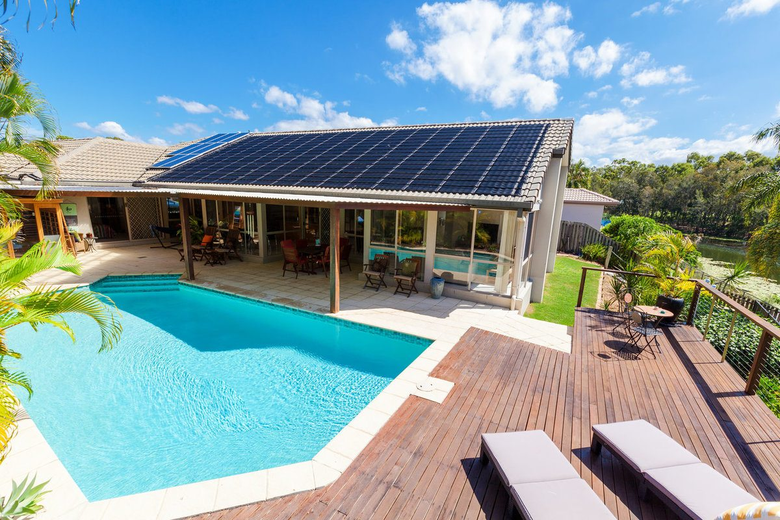
Installing a heating system to your swimming pool extends the summer and swim season for your family. It adds up to more months of fun time in the pool. For some states, swim season can last for the whole year for homes with a pool heating system.
If you are looking for a heating option for your swimming pools, here are some of the factors to consider before opting for a solar pool heater installation.
The Pool Size
Before considering installing a solar water heater as your option to warm up your swimming pools, consider the size of your pools first. Ideally a square foot of your pool area requires a square foot of solar panel. For a small to medium sized family, the average size of a pool is around 25 feet wide to 30 feet long. That’s 750 square feet of solar panels to invest in.
However, states that enjoy a good amount of sun can opt to have fewer solar panels. Compute the percentage of days you use your pool in a year. if you use it 75% in a year, you can opt to have 75% of your pool size in square feet as your basis for the number of solar panels you need. On average, a 5kW system costs around $6500. In different states, the amount can go double such as in Adelaide. An expert solar panel contractor can help you determine the right number of solar panels you need appropriate to the size of your pool.
Length of the Swimming Season
Longer summer seasons give you more time in the pool without having to power up your solar water heaters. Thus, the need for a pool water heater is not that high. For such cases, you can consider a smaller solar heating system for your pool heating needs.
However, for homes that enjoy spending time in the pool, even during winter and colder seasons, a bigger solar water heating system is required. For practical reasons, it would be best to opt for a gas powered pool water heater when living in areas that have frequent cooler seasons than humid ones. It would be difficult for a solar water heater to power up and warm up your pools with the lack of solar energy resources in your area. Gas-powered water heaters make it possible to enjoy a warm time inside your pool, even in the coldest of seasons.
Covered and Uncovered Pool
Covered swimming pools retain 70% of the heat in your swimming pools. Ideally, for safety and cost-efficient reasons, having a pool cover is a must. However, for homes who don’t have pool covers, they usually end up losing heat in the pool especially during night time when temperatures begin to drop. If you plan to cover your pools consistently when not in use, together with a solar powered water heater, gives you the best efficiency possible for a pool water heating system.
Manual or Automatic Solar Controllers
Modern solar water heaters come with automatic solar controllers. The automatic controllers make it possible to bypass the solar panels when the conditions in the area require optimum heating, especially during cloudy and rainy periods. However, for homeowners that can actually spend time controlling their solar panels manually, they get to enjoy a few hundred dollars in savings for choosing a manual solar water heater over a solar heater with automatic controllers. However, in terms of convenience, automatic solar controllers make your solar panels accessible and increase its efficiency too.
Cost can be a great factor to consider when deciding to install a solar water heater at home. However, take time to look beyond the initial cost of installation and measure the efficiency, convenience and savings you can get to enjoy in the future with a solar water heater for your pools at home.




